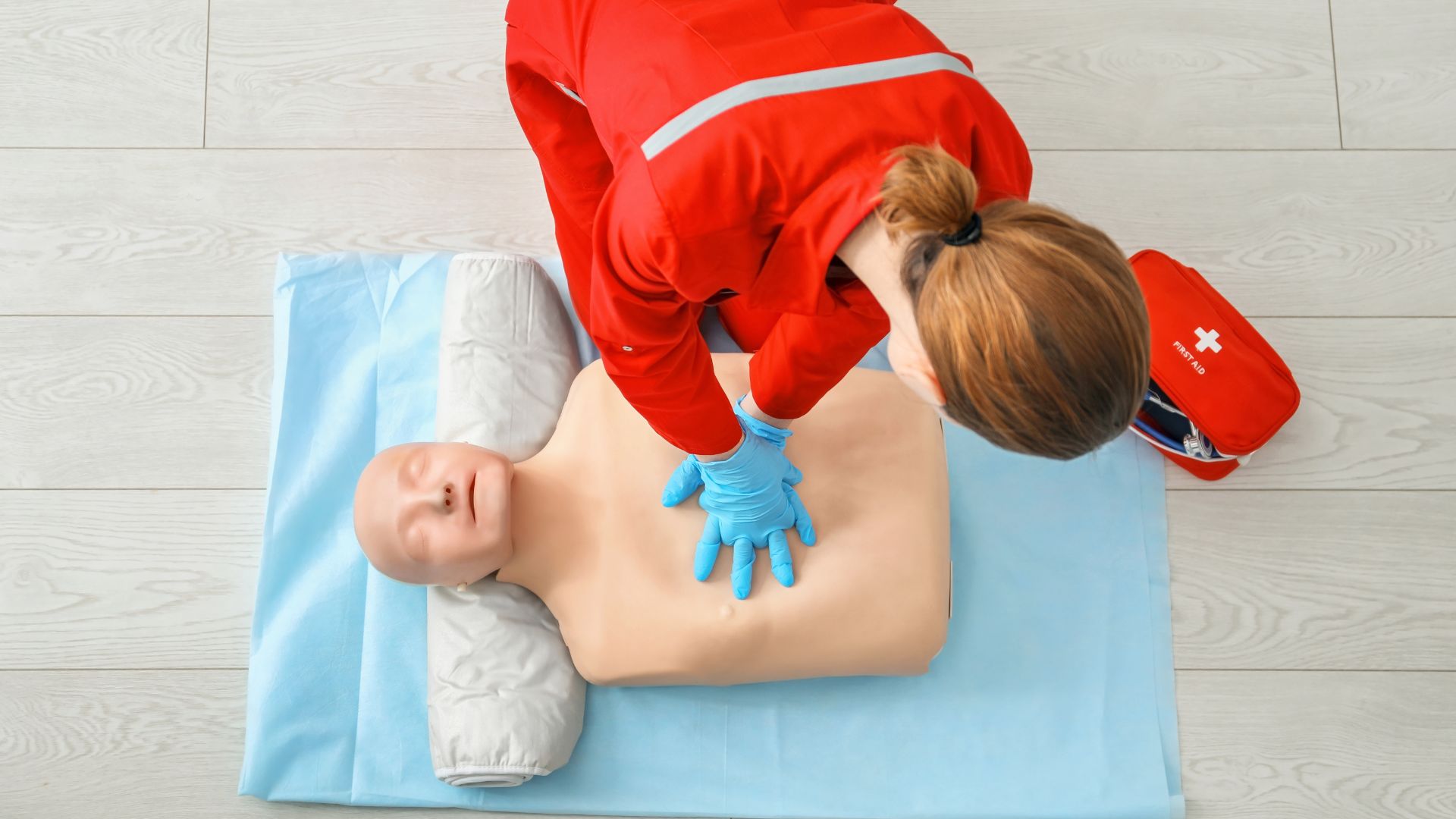Introduction
Cardiopulmonary resuscitation (CPR) is an important life-saving skill for handling emergencies promptly and effectively. It empowers you to help victims of sudden cardiac arrest, respiratory failure, choking, and drowning. A CPR course ensures that healthcare professionals like doctors and nurses stay updated about the latest life-saving techniques and practices to provide better patient care during critical situations.
In this article, we will discuss which roles in a healthcare setting need CPR certification to tackle emergencies effectively.
Why is CPR certification important in healthcare?
CPR training is mandatory for all health practitioners since it enables them to respond quickly in emergencies. CPR-certified healthcare professionals can provide timely patient care to prevent further complications and save patients’ lives.
Here is how CPR certification helps healthcare personnel in crisis situations:
- Saving lives in emergencies:
Time is of the essence when handling a person experiencing a cardiac arrest or respiratory failure. CPR training enables you to perform chest compressions and provide rescue breaths to restore the normal heart rhythm and ensure ventilation to the victim. This helps to keep the blood and oxygen flowing to vital organs to stablize the patient and save his or her life.
- Legal requirements and liabilities:
A CPR certificate is compulsory for some roles in most healthcare settings. Healthcare professionals and first responders must have CPR training to handle emergencies. Refusal to possess a certification can incur legal repercussions and liabilities.
Which roles in healthcare need a CPR certificate?
Healthcare professionals and other hospital support staff need to have undergone training in basic life skills, like CPR. It empowers you to handle emergencies, like cardiac arrest, respiratory failure, choking, and drowning incidents, effectively and correctly.Also check coupon code for crp courses
Here is who in a healthcare setting needs a CPR certification:
- Nurses:
Nurses often are the first contact persons for patients in a healthcare environment. As a nurse, you offer ill or injured people the necessary care, support, and therapy. It is important for you to be CPR-certified so that you can provide prompt and efficient treatment to a person in cardiac arrest or be able to handle other emergencies.
- Doctors:
Doctors diagnose and treat different health problems. Although you, as a doctor, may not always be the first responder to an emergency, CPR training ensures you can step in anytime and assist in crisis situations.
- EMTs and paramedics:
Emergency medical technicians (EMTs) and paramedics, along with the nurses, are the first responders in an emergency. As an EMT, you usually arrive at the scene of an accident, natural disaster, or any other emergency to provide immediate care to the victims. You may be required to perform resuscitation, remove obstruction to airways and use an automated external defibrillator (AED) to revive the patients. A CPR course is thus essential for you.
- Medical assistants:
Medical assistants help doctors and nurses perform clinical and administrative tasks. Although your regular tasks may not include direct patient care, CPR training ensures that you prepare for emergencies.
- Dentists:
As a dentist, you examine, prevent, and treat issues related to teeth and gums. Your scope of practice narrows down to oral health, but training and certification in basic life skills like CPR ensures the safety and well-being of your patients during dental procedures.
- Physical therapists:
Physical therapists facilitate the recovery of patients with injuries, post-surgery, or other conditions affecting their mobility and strength. Although a therapist’s work is about rehabilitation and improving a patient’s physical strength, having undergone CPR training is a valuable addition to your skillset to respond promptly in a medical emergency.
How do you obtain CPR certification?
To obtain a CPR certification, you must undergo training from a reputed institute providing hands-on training in life-saving techniques in emergencies. You can enroll in an online CPR course or attend a traditional classroom-based program. While in-person classes offer hands-on training, online learning is easily accessible and convenient. You can go for the training anytime and anywhere without disturbing your already set work schedule.
The CPR course typically covers basic life-support skills like performing chest compressions, managing the airway and using an AED during emergencies. It also keeps you updated about the latest guidelines and practices on effectively tackling crisis situations. After completing the training, you will appear in a skills assessment test to demonstrate your knowledge of CPR procedures. Once you finish the test, you will be provided with a certificate. Many professionals, including those in healthcare, need CPR certification, but enrolling in first aid training could be an option for anyone willing to be prepared for emergencies.
Conclusion
CPR certification is a must-have for those working in the healthcare industry. Through CPR training, nurses, doctors, EMTs, and paramedics can promptly and effectively handle emergencies. You are empowered to perform chest compressions, provide mouth-to-mouth resuscitation, and use an AED to provide the best patient care for a positive outcome. If your career revolves around any of these roles, obtaining a CPR certificate is necessary for you. So, what are you waiting for? Join a reputed institute today and get certified. Be prepared to handle emergencies.



